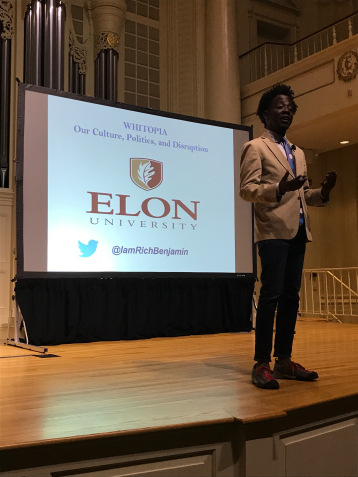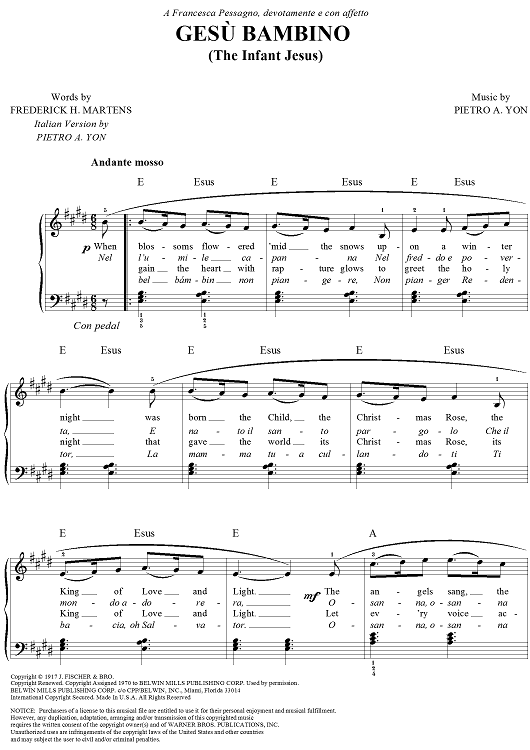By Cameron Koubek
 Rich Benjamin, author of “Searching for Whitopia,” spoke at Elon on Tuesday night. Photo by Cameron Koubek
Rich Benjamin, author of “Searching for Whitopia,” spoke at Elon on Tuesday night. Photo by Cameron Koubek
Writer and anthropologist Rich Benjamin spoke at Elon University on Tuesday night about his book “Searching for Whitopia,” and the ideas behind it. Benjamin identified three criteria that make a community a whitopia: it has more than 6 percent population growth since 2000, 90 percent of that growth came from white migrants and it has an “ineffable social charm.”
Benjamin spent two years visiting the fastest growing white communities in the country. He focused on three examples in particular: St. George, Utah; Coeur d’Alene, Idaho; and Forsyth County, Ga. Benjamin embedded himself with the people who lived in those locations to explore what makes a whitopia.
“Most Whitopians are not giving race a second thought,” said Benjamin. “Rather, they’re looking for values that have come to signify whiteness – the alluring pulls of merit, freedom, individualism and privatism.”
But many white Americans feel that these values are being threatened by increasing diversity in the country. Benjamin pointed out three ways in which some white people feel “replaced.” First, demographically – whites are projected to no longer be a racial majority in the United States by the year 2042. Second, economically – this comes from the fear that immigrants and outsourcing are taking jobs that rightfully belong to Americans. Third, culturally – our music, television and sports are less dominated by white faces.
“Interpersonal workplace relationships have gotten vastly better. And yet, this country is as segregated today as it was a generation ago. That’s the devastating irony.”
– Rich Benjamin
Benjamin used the term disruption to describe the large-scale diversification that is making white people retreat to whitopias. He recalled a conversation he had with a member of the Aryan Nation while in Idaho.
“One [Aryan Nation member] came up to me and said, ‘You need to know this distinction. We’re not white supremacists, we’re white separatists. We don’t think we’re better than you, we just want to be away from you,'” said Benjamin.
Benjamin related the whitopia movement to last year’s presidential election and the protests in Charlottesville, Va. that took place in August. Donald Trump won 267 of the 284 counties that were considered whitopias. Many protesters in Charlottesville said they were trying to “take America back,” a common sentiment among those who live in whitopias and feel that whites are somehow losing America.
The main point Benjamin said he wanted the audience to take away was disruption. People who move to whitopias are sensitive to the changes in their roles in many aspects of society that are rapidly becoming more diverse.
“Disruption is a two-sided coin,” said Benjamin. “If disruption can be a force for fear and uncertainty, it can be a force for positive social change.”
Benjamin seemed cautiously optimistic about the future. He pointed out that while societal changes are causing anxiety for some, race relations have taken steps in the right direction in recent years and could continue to do so as more people become accustomed to a diverse America.
Advertisements Share this:




